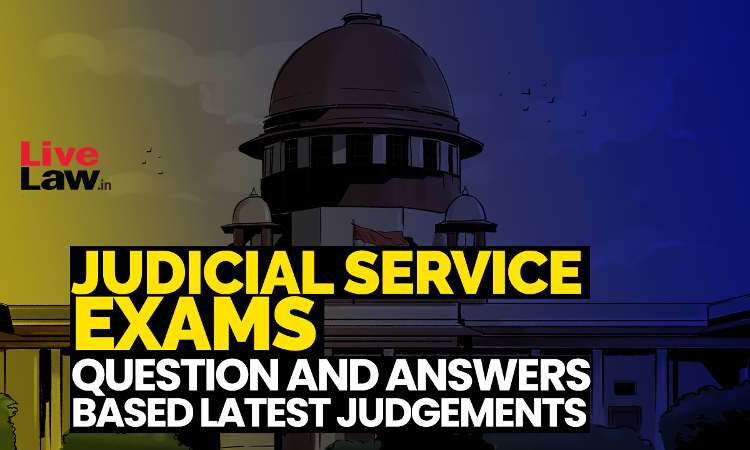Judicial Service Exams: Question And Answers (MCQs) Based On Latest Judgements- PART-1
Suraj Parmar
20 Dec 2023 8:44 AM IST

Next Story
20 Dec 2023 8:44 AM IST
MCQs based on Current SC Judgments- October 20231. In which case did the Supreme Court rule that mere non-cooperation with summons issued under Section 50 of the PMLA Act 2002 is not sufficient to warrant arrest?A. Pankaj Bansal v. Union of IndiaB. Sanjana Kumari v. Vijay KumarC. State Bank of India & Ors v. P ZandengaD. South Eastern Coalfields Ltd v. State of MPAnswer: A. Pankaj Bansal...
